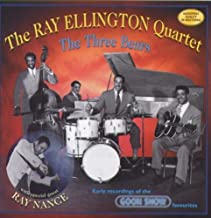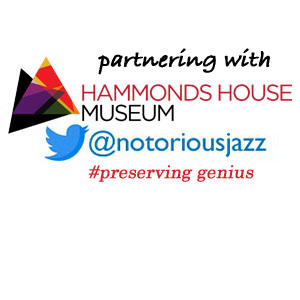
Daily Dose Of Jazz…
George Coleridge Emerson Goode was born on November 29, 1914 in Kingston, Jamaica. His father was a choirmaster and organist and his mother sang in the choir. Moving to Britain in 1934, the 19-year-old student at the Royal Technical College in Glasgow, Scotland and then went on to read for a degree in engineering at Glasgow University. Already proficient as an amateur classical violinist he turned to jazz and took up the bass after hearing the music of Count Basie, Duke Ellington, Billie Holiday and Louis Jordan and decided to embark upon a musical career.
His primary early influences as a bassist were Walter Page, Slam Stewart and Jimmy Blanton. In London during World War II, Coleridge worked with Johnny Claes, Eric Winstone, Lauderic Caton, Dick Katz, became a founder member of the Ray Ellington Quartet and recorded with Django Reinhardt in 1946, alongside Stephane Grappelli. He went on to play with Tito Burns’ sextet and led his own group, before being invited to join Joe Harriott’s new band in 1958.
By 1967 he was recording with Chris McGregor, Dudu Pukwana, Ronnie Beer, and Laurie Allan on Gwigwi Mrwebi’s Mbaqanga Songs. Through the decade and into the 1970s, Goode worked extensively with pianist/composer Michael Garrick, while performing in the house band at Laurie Morgan’s Sunday jam session into his 90s.
In 2002, he published his autobiography Bass Lines: A Life in Jazz, which chronicled the birth of free form jazz in Britain. He was honoured with the Services to Jazz Award at the Parliamentary Jazz Awards, and at the age of 100, double bassist Coleridge Goode passed away on October 2, 2015.
More Posts: bass,history,instrumental,jazz,music


